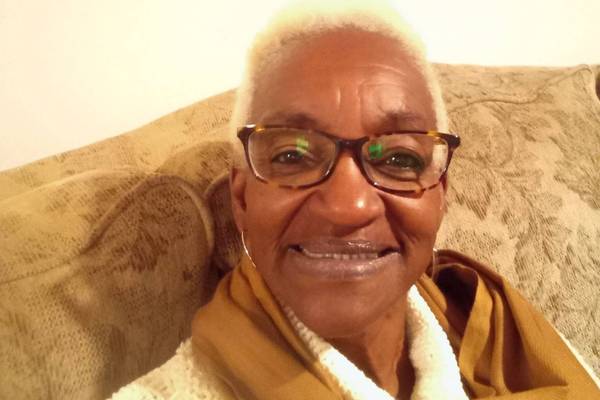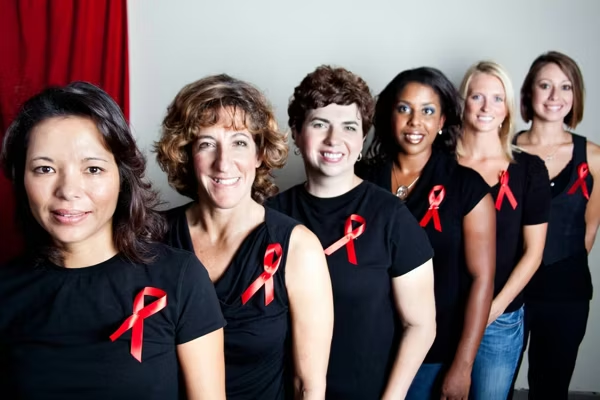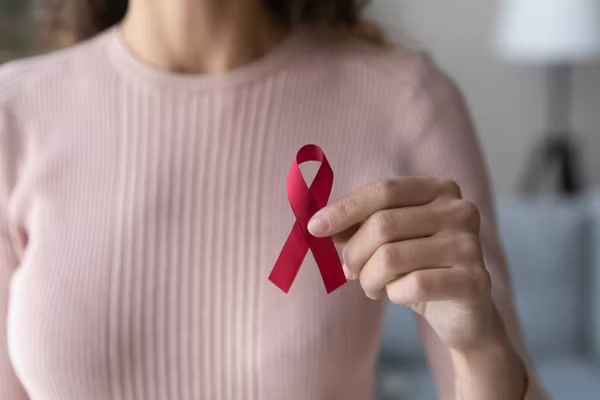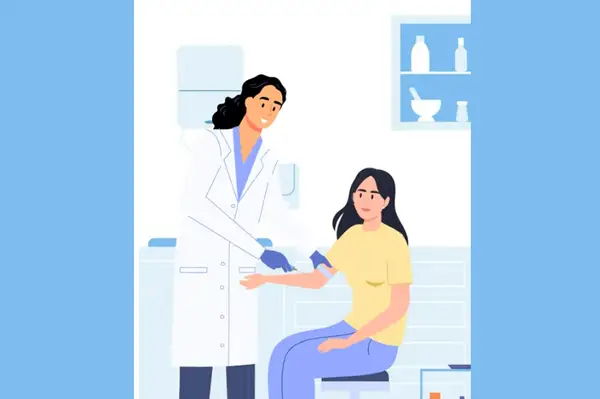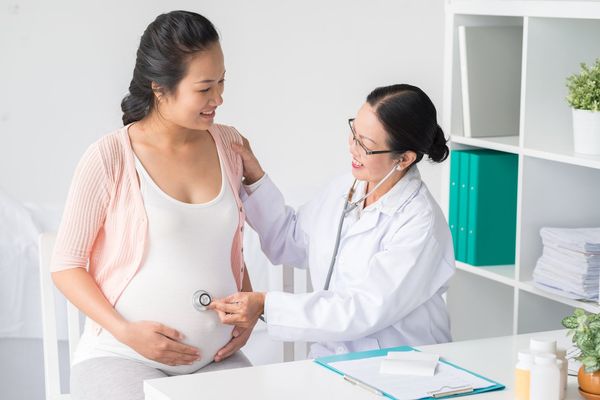December 1 is #WorldAIDSDay.
One year after being diagnosed with HIV, LáDeia Joyce threw a party.
Family, friends and colleagues gathered for food and drink, then sat down to watch 90 Days, a short film about a young, professional heterosexual Black couple navigating one partner's HIV-positive status.
At the end of the movie, Joyce told the audience members she was HIV positive. "There was an outpouring of support, but at the same time, it made people stop and think," she said. "A lot of people told me it hit close to home."
Despite decades of messaging that anyone can contract HIV, Joyce, now 40, said it was hard to find people like her — Black, female and millennial — represented in HIV advocacy when she was diagnosed in 2016.
While African Americans only make up 13% of the U.S. population, they accounted for 42% of the 37,832 new HIV diagnoses in 2018, the highest rate among all racial and ethnic groups. Black women accounted for 57% of the new HIV diagnoses among women.
Gregorio Millett, vice president and director of public policy for amfAR, The Foundation for AIDS Research, has addressed the impact of racial and socioeconomic inequities in HIV/AIDS treatment during his decades of shaping federal policy and through his HIV/AIDS research for the Centers for Disease Control and Prevention (CDC). He notes that the COVID-19 pandemic has highlighted systemic issues that put certain communities at risk for other diseases, including HIV.
"What you usually hear in these cases is, 'What are these communities doing that are placing them at high risk?'" Millett said. "That's fundamentally the wrong question. The right question is, 'What systemic issues are in place so that when there is a new disease it always gets to the most marginalized communities first?'"
One explanation may be that, across the United States, people of color are less likely to have access to quality health care, and geography can further intensify those disparities in HIV/AIDS disparities and treatment.
Fifty-eight percent of African Americans live in the Southern United States, and the most recent CDC statistics, which are from 2017, show that the South had the majority (51%) of new HIV diagnoses. And Black women accounted for the vast majority (67%) of the new HIV diagnoses among all women living in the South.
"Not only do we see higher rates of HIV in the Southern United States, there are also laws and policies that place Black Americans at greater risk for worse outcomes of HIV," Millett said. "In these states, more people lack health insurance. Many Southern states haven't expanded Medicaid under the Affordable Care Act, and Medicaid expansion is associated with greater rates of HIV testing."
Millett said people living with HIV in states without Medicaid expansion also have less access to antiretroviral medication that can suppress the viral load of HIV to an undetectable level and make it much less likely to be transmitted to others. Despite the increase in grant funding to help more people afford antiretroviral medication, costs can still be prohibitive for many.
A lack of healthcare providers in many regions in the South and stigma about HIV/AIDS are also cited as factors that limit access to HIV treatment. The same scenario exists with access to pre-exposure prophylaxis (PrEP), which consists of taking a pill a day to prevent the development of HIV after potential exposure.
Shortly after the FDA approved PrEP in 2012, a CDC study found that 500,000 African Americans and 300,000 Latinos could have benefitted from the drug, but only 7,000 African Americans and 7,600 Latinos were actually taking it.
A personal fight
Joyce noticed the geographic and socioeconomic disparities in HIV diagnosis and treatment almost immediately. As a diabetic, she regularly had blood drawn to check her blood sugar levels, and would be asked about HIV and sexually transmitted infection testing as well. When she lived in New York City and Atlanta — two cities with a notable HIV/AIDS public health infrastructure — Joyce was always offered an HIV test after a blood draw.
But when she returned to her home state of Tennessee, she was surprised she had to take the initiative and ask for an HIV test. Joyce wonders how many others living with HIV had a delayed diagnosis or never received one at all due to that opt-in approach.
"In the deep South, we have so much to unpack when it comes to sex that we can't even get folks to take a test," Joyce said. "We have to unlearn this harmful psyche and thinking about sex. [Many] of our states [stress] abstinence-only education and we have the highest HIV transmission rates. It has nothing to do with our habits when it comes to sex, it's everything around our processing and socialization about sex."
Tennessee also has not expanded Medicaid under the ACA. Although Joyce has private insurance, finding HIV treatment wasn't a simple process. After she tested positive, the doctor's office where she took her HIV test handed her a letter referring her to the health department for further information. She later learned that the health department only diagnosed HIV and didn't offer treatment.
Through an internet search, Joyce found an infectious disease doctor in Memphis, a specialist she calls a godsend. The doctor, who worked in San Francisco at the start of the AIDS crisis, put Joyce on an antiretroviral medication she says has made her viral load undetectable.
Today, Joyce helps others battle these disparities by being the advocate she hoped to find when she was first diagnosed with HIV. She's used her story to let people know Black women are disproportionately at risk for contracting HIV but can decrease that risk by accessing medications like PrEP — and that they can live healthy lives with HIV thanks to advances in antiretroviral treatment.
"Many people will stop me and pull me aside and tell their stories," Joyce said. "They'll tell me they wished someone like me had been around years ago to be so open and honest about their diagnosis."
Resources for HIV/AIDS care and treatment
The Centers for Disease Control and Prevention — Resources for People Living With HIV
HIV.gov
Women and HIV
- Clinically Speaking: Questions to Ask Your Healthcare Provider About Your HIV Treatment - HealthyWomen ›
- Questions to Ask Your Healthcare Provider About HIV Treatment - HealthyWomen ›
- Women Can Get HIV. That’s Why They Need HIV Testing. - HealthyWomen ›
- HIV Testing: Knowing Your Status Can Save Your Life - HealthyWomen ›


